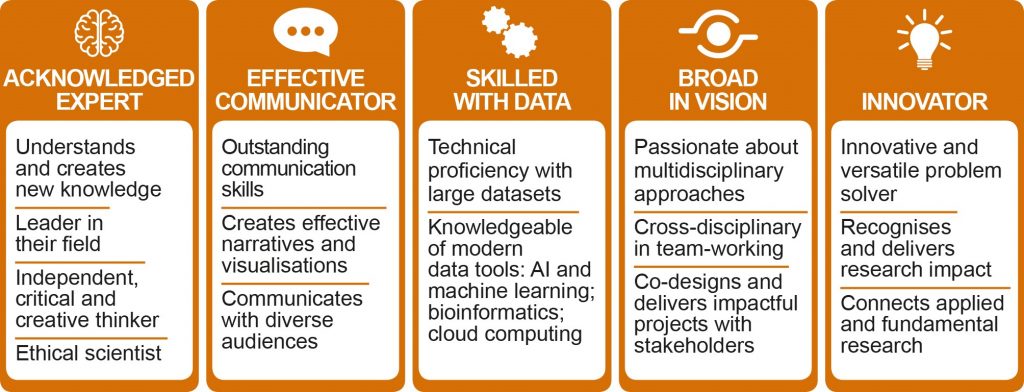ARIES PGRs are managed in cohorts. Our commitment to develop a cohesive and supportive working group will be facilitated through four weeks of mandatory whole-cohort residential training. In this way we bring together the whole cohort to learn, socialise, and work collectively across disciplinary divides. The four weeks of training doesn’t occur in a single block, but is spread throughout your PhD, with training delivered at appropriate points during your studies:
Year 1
Induction
The induction will take place within your first few weeks as a PGR. You’ll need to attend your University induction(s), and then the whole ARIES cohort will usually meet together at Hautbois Activity Centre in North Norfolk. These three days comprise an introduction to what it means to be an ARIES PGR, how to approach a PhD, and where your PhD could take you. You’ll learn about the context of NERC research, gain skills, and learn about tools to help you move forward into your postgraduate studies. There will be plenty of opportunity to socialise with your ARIES cohort and take part in various activities – this is where you’ll begin to build your cohort of peer support.
Winter School
In the Winter of your first year you’ll have the opportunity to learn about communicating your research in a safe environment. You’ll also take time to think about wellbeing, time management, and good research practises.
Summer School
The final whole-cohort event of the first year is a Summer School, usually at the University of East Anglia or University of Plymouth. This is a week packed with practical courses and visiting speakers to help you explore multidisciplinarity, learn how to communicate your research to different audiences, and think about and plan for the next steps of your career. The Summer School also gives you an opportunity to meet and socialise with PGRs from other cohorts.
Year 2
Advanced Skills Training
In your second year you are really knuckling-down to your PhD research, so ARIES cohort training is limited. PGRs will be able to access appropriate Advanced Skills Short Courses.
Year 3
Summer School
As you approach the end of your third year your thoughts will be turning to the completion and culmination of your PhD research. Your final Summer School is usually hosted at the University of East Anglia or University of Plymouth during the same week as the Year 1 Summer School. This gives you the opportunity to meet and impart your hard-won experience to the first years. During your Summer School you’ll learn about communicating research outcomes, effective writing, maximising impact, and planning ahead for your career.

